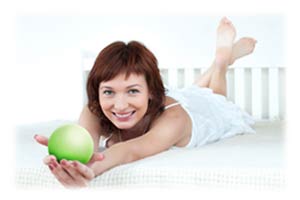
When you hear or see the word insomnia, narcolepsy, or sleep apnea, most people automatically know they are sleep disorders and what they mean. What about the word microsleep? Have you ever heard of it, or know the meaning?
Micorsleep is an episode of light sleep lasting anywhere from one second up to two minutes. What makes microsleep extremely dangerous is when the episodes occur you’re completely unaware that you are sleeping. In fact, someone next you may not even realize what is going on since the majority of the time the eyes stay open during an episode. People wake suddenly, usually with a jerk of the head. Microsleep can be caused by insomnia, sleep deprivation and fatigue. Individuals with sleep disorders are more likely to experience microsleep. However, anyone can experience them especially if they are tired.
An episode can happen at anytime of the day, but are more likely to occur during pre-dawn hours and in the mid afternoon. According to the Department of Transportation an estimated 20% of accidents on major roads are sleep related. Some symptoms to be ware of that can lead up to a microsleep episode are:
- Constantly blinking of the eyelids
- Nodding of the head
- Eyelids drooping
- Difficulties concentrating
If any of the above symptoms occur while driving a motorized vehicle the best-case scenario is to find a safe place to pull over on the side of the road and take a short nap. A brief nap as short as 20 minutes could help prevent a microsleep episode.
To prevent microsleep try to get the recommended amount of sleep of 7-9 hours a night. Coffee and other caffeine supplements can also help with falling asleep. Remember to keep in mind if you consume caffeine closer to your bedtime it will cause you to have difficulties falling asleep.
To learn more information about Microsleep, contact a PM Sleep Center to schedule an appointment.

 Click to Call : 623-815-8900 Fax 623-815-8901
Click to Call : 623-815-8900 Fax 623-815-8901


